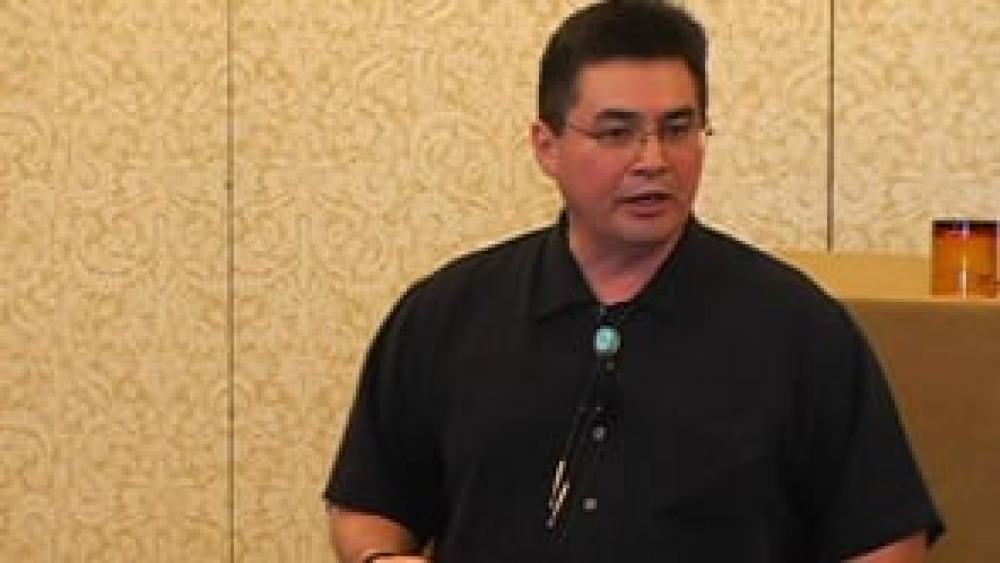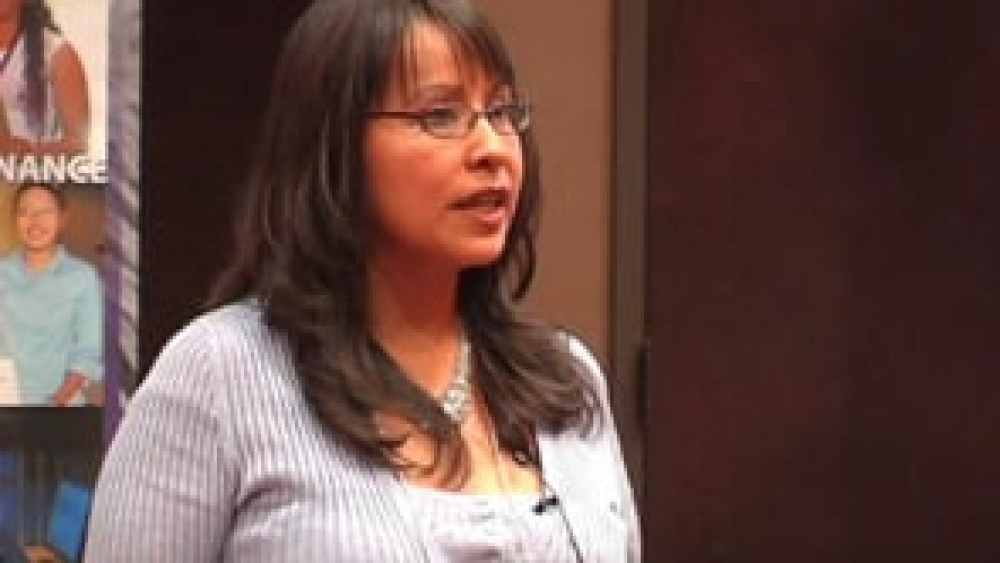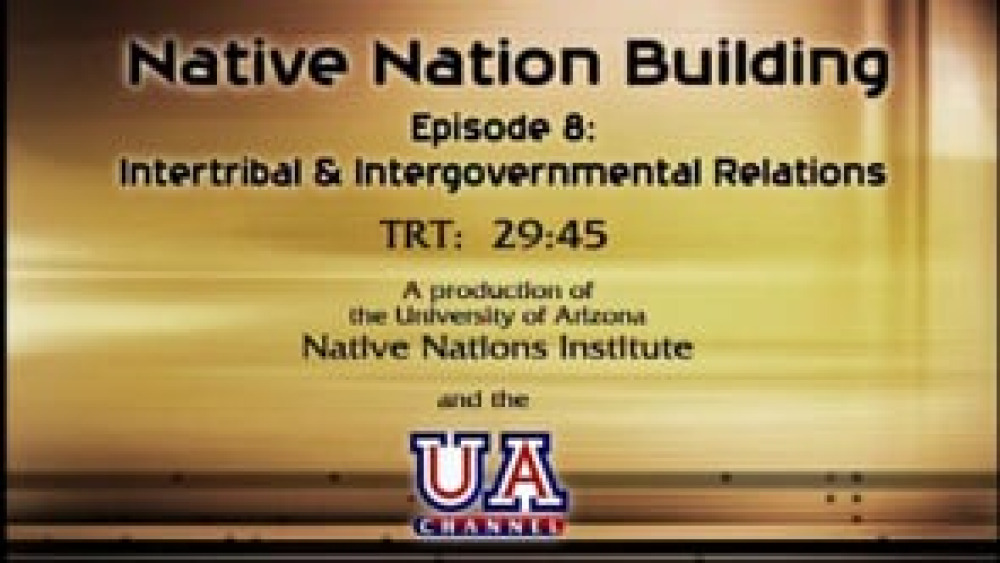John McCoy of the Tulalip Tribes offers advice to session participants about how to communicate tribal priorities in the intergovernmental law and policy arenas.
Additional Information
McCoy, John. "Intergovernmental Relations." Honoring Nations symposium. Harvard Project on American Indian Economic Development, John F. Kennedy School of Government, Harvard University. Sante Fe, New Mexico. February 8, 2002. Presentation.
Transcript
John McCoy:
"Good afternoon. As Andrew said, I'm John McCoy and the Director of Governmental Affairs for the Tulalip Tribes of Washington State and our physical location is 40 miles north of Seattle. Our western boundary is the Puget Sound; our eastern boundary is Interstate 5, which technically we're still considered a rural tribe, but urban areas. So that's a little bit quick history about me and Tulalip.
In our breakout session, some of the things that we covered was one, we feel it's necessary for all tribes to have a governmental affairs department. And then you all, in creating this department, you need to put someone in there, a Native American that you can trust to deliver your policy messages. That is a tall order because tribes traditionally, jobs like that they like to keep at the council level. But councils, you're extremely important to the governmental affairs process, one if you're to do the job effectively you need to travel a lot but you have some at-home issues that you need to take care of and your intergovernmental affairs department, not only do they have to do the external work, they also have to do internal work. So it's a continuous education process on your home reservation and in your local county, state, region, and federal levels.
So it's a tremendous balancing act, and it is how we function at Tulalip and from listening to Justin [Martin] from Grand Ronde, we basically operate the same way. Individuals like myself go out and deliver the message, do the heavy lifting, but when it's time to make a testimony at the legislature or maybe go to the state and federal level to sign some legislation, well, then that's where we need the tribal leader to deliver the final message. And so we need that consistency, we need your help, but we also need you at home because that work is there. Again, it's a continuous education project. We need to be involved in the local levels. Everything is grassroots, so you need to work your local communities and even still doing that, there are situations that arise like at Mille Lacs, they have a horrible situation going on right now and I wish them the best of luck 'cause I know they'll persevere. But you need to continue to work, as contentious at times as it is, you just have to keep working because at the end of the day you will prevail because...
Joe Trujillo and I were talking also in our group we were talking about what the federal budget is for Indian Country and then what the gaming revenue is. Well, yes, the gaming revenue now exceeds the federal budget for Indian Country, but what we have to be careful of and the federal government needs to understand is that yes, originally that money, the gaming and the federal dollars, yes it does start out as for Indian Country. But all of us in this room know and understand that we don't have the goods and services on our reservation to deliver what is needed. So consequently the entire community, the non-Indians benefit. Whenever you build a road on your reservation, the non-Indians benefit. Whenever you run the water line for your people, the non-Indians benefit. So there's a lot of indirect benefits that the surrounding communities get to enjoy because of the Indians. So that's one of the educational messages that you need to continue to get around to your surrounding communities because no matter what you do, they benefit. Just in your employment figures...at Tulalip we employ 1,250 people, 50 percent of them are non-Indians, although the Indians hold 74 percent of the management positions, as it should be. You deliver the medical benefits, the dental benefits and all those other things, you probably have a...your minimum wage is probably higher than the federal or the state minimum wage. So you do a lot of things, you need to get your message out and let everybody know what you're doing.
Another thing that we continue to battle in going out, when we do go out, we need the support, because these legislators will see Justin and I all the time. Every now and then we need to bring a youth or an elder with us to help deliver a message. So this is a community project. It's teamwork; you need that work from everybody to deliver these messages. And then, the other ticklish thing in the feds, Congress is running legislation. Now that basically would extremely limit the tribe's ability to participate in the campaign process. From the tribe's point of view, I think this is something that directly violates the First Amendment of free speech. There was an attempt in Washington State to...they tried to pass a bill four years ago that said, 'Foreign corporation, foreign nationals and Indians cannot participate in the political process.' Needless to say, we killed that bill. So we need to be active. Now, there are times a tribe may not be able to give any money, but you actually have the most powerful weapon there is and that is your vote. You need to get your members out to vote. And you may not have like I say the finances to make a contribution but there's two things politicians understand: it's money and votes, and not necessarily in that order. If you can deliver the votes, you can make a political statement. If you can deliver money and votes, then you can make a bigger statement. But it's teamwork; we have to work together from the culture. We need the culture because we talked quite a bit about that today. All our governments are culture-based and that is appropriate, that's the way it should be. We need our elders to tell people like me their stories because that helps me deliver the message and keep it culturally introspective."



